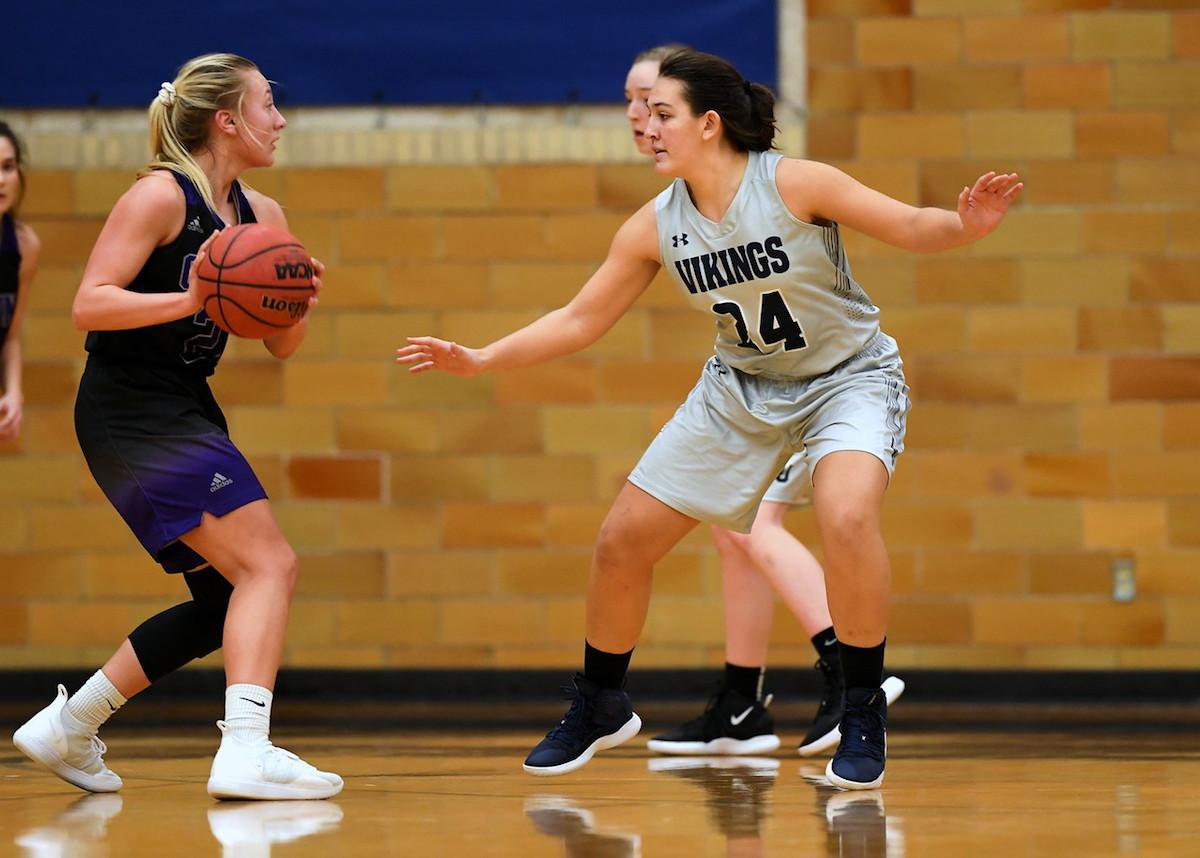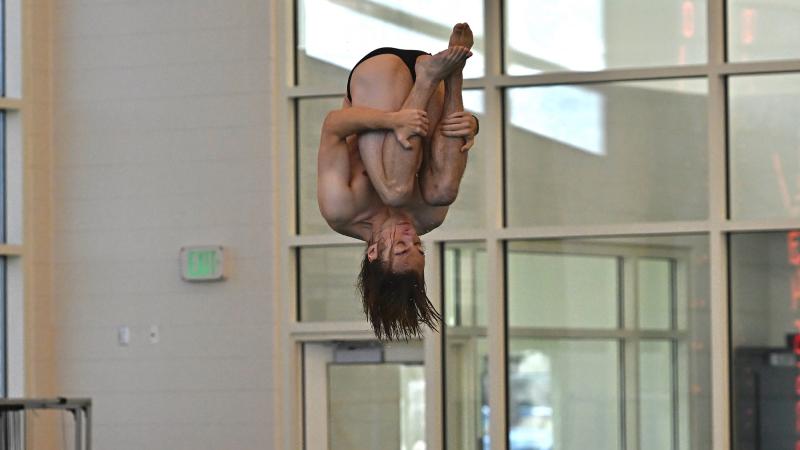If you’re a student-athlete, like me, you know that balancing the demands of academics and athletics can sometimes be overwhelming.
It’s hard, and it’s not for everyone. But finding that healthy balance is doable and necessary. Drawing on my experience—heading into my fourth year at Lawrence, I’m an English (literature) major and a captain on the women’s basketball team—I’ve compiled a list of six tips to help you maintain your equilibrium while being a student-athlete. No matter which of Lawrence’s 22 varsity sports you’re playing, keep these things in mind:
1. Be health-minded
This means eating well and getting enough sleep. I know that our schedules can get really crazy and sometimes we just don’t have time to sit down in the Commons for an entire meal, but that doesn’t mean you should skip out on food. I recommend stocking your residence hall room with snacks and fruit—think protein or granola bars, apples, crackers, muffins and yogurt (if you have a fridge). You also can grab a to-go meal from the Café or a paper bag lunch from the Corner Store and eat it on the go. Most professors will let you eat in class, so you don’t have to worry about not finishing your food in time—as long as you’re not disturbing the class, of course.
You also need to make sure that you’re getting ample amounts of sleep—at least seven hours. This is something I struggled with my first and second years, so I know that it’s easier said than done. For some reason, I would leave a bulk of my homework to finish after practice, and then I’d stay up as long as necessary to finish my assignments, which would sometimes take until well after midnight. Don’t do that. It might be hard, but pick a reasonable time to stop doing homework—no matter how much you have left—and just go to bed; your body needs that rest.
2. Be proactive with your studies
When you’re in season, it might seem like there’s no time to complete assignments. Between practices, lifts, traveling, and every other team activity, getting your work done is challenging. What helps me to stay on top of my work is really just knowing my schedule and committing blocks of time to work on assignments. Get a routine going. If you know that you have an hour or two between classes, use that time to get easy assignments out of the way. If you have an away game, bring your work with you, find a seat on the bus with an outlet and take advantage of the free WiFi to get some work done. Wake up early at the hotel and chip away at your workload. Don’t wait to do assignments until after you’ve come back from games or practices—it’ll just cause you more stress and, in the end, you’ll have less time to get it done right.
3. Rely on teammates for support
More often than not, one of your teammates will have taken the same class as you or had the same professor. Use them as a resource. They can give you insider tips on how to do well in the class. Or maybe one of your teammates is a tutor and can help you with a paper or they know how to help you solve a problem. Also, sometimes your teammates will know some resources to help you that you hadn’t thought about. A lot of the time, my teammates and I will study together even if we’re working on different assignments. Ask your teammates to do the same because just being around that kind of atmosphere can help put you in that homework mindset.
4. Take study breaks
Sometimes your mind can’t focus and you need to give your eyes a break from looking at screens or books. Ask a teammate if they want to go to the gym and get a small workout in, go for a walk along the river or just stroll down College Avenue for food or beverages. Balancing the student-athlete life also means incorporating time for activities that don’t involve either. I know that I can’t sit for hours on end trying to complete one assignment, so taking breaks to reset my mind helps me to be more productive.
5. Be honest with coaches
It’s important to remember that you’re a person first, then student and then an athlete. If you’re feeling overwhelmed with something in your personal life, talk to your coaches and let them know that you’re not at your best. Your mental health is important and should not be overlooked. The coaches at Lawrence also understand that the classes are challenging and stressful, so if you’re falling behind on an assignment or you have a big test coming up, discuss your concerns with them to see how you can come to a solution so that you’re not sacrificing one over the other. And if you get injured, no matter how insignificant you think it is, let your athletic trainer and coaches know. Not communicating these things with your coaches can affect your performance in the classroom and in games or meets.
6. Why so serious?
Speaking as a senior captain, my last piece of advice is to simply have fun. Don’t be too serious about it all. Give your best effort, of course, but don’t burn yourself out trying to do everything perfectly. You’re not going to remember all the shots you miss or the pitches you didn’t swing at. It’s the memories from team dinners, karaoke bus rides, inside jokes, and the friends you make that you’ll take with you after you graduate. Not to sound cheesy, but enjoy it while it lasts.



